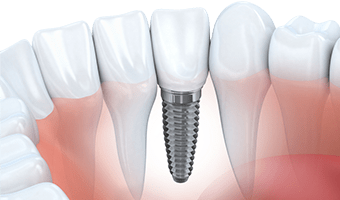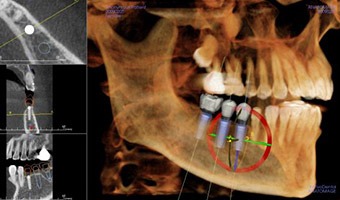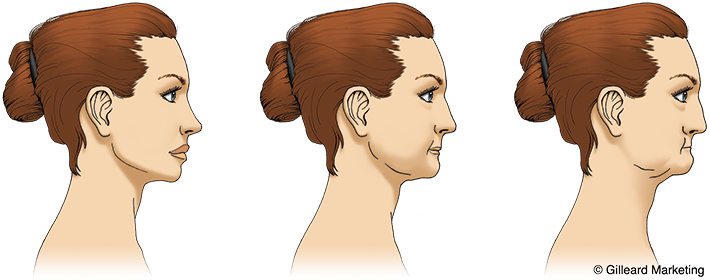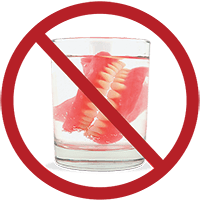Dental Implants Procedure

The dental implants procedure is an outpatient surgery handled by the best experts. It involves multiple steps, and is usually completed within a few hours. The results of the process look and feel like regular teeth.
The Most Durable and Lifelike Solution for Missing Teeth
 Dental implants are the strongest, longest-lasting and most lifelike replacement option for missing teeth. They function and feel just like regular teeth and can last a lifetime. Drs. Ryan, Tyler, and Thomas Rubino always recommend the dental implants procedure as the first choice in tooth replacement for all patients who are eligible to receive them.
Dental implants are the strongest, longest-lasting and most lifelike replacement option for missing teeth. They function and feel just like regular teeth and can last a lifetime. Drs. Ryan, Tyler, and Thomas Rubino always recommend the dental implants procedure as the first choice in tooth replacement for all patients who are eligible to receive them.
What is a Dental Implant?
A dental implant is a titanium post that is inserted into the jawbone to function as an artificial tooth root to replace a missing tooth. A connecting piece known as an abutment is secured on top of the implant and acts as the attachment point for a dental crown, a bridge or a denture.
The jawbone around the inserted implant integrates (fuses) with the implant surfaces and strongly anchors the implant in place. The integrated implant is then as strong as a natural, healthy tooth root.
The Benefits of Dental Implants
Dental implants have many benefits and advantages that make them a superior replacement option for missing teeth.
- Dental implants function just like regular tooth roots and make your dental restorations feel and function just like natural teeth. Most people comment that they cannot tell the difference between their replacement teeth supported by dental implants and their natural teeth.
- With dental implants, you have the same biting and chewing power as you would with natural teeth. This allows you to eat all the foods you want and need for full nutrition, and removes the need to use a blender or avoid certain foods.
- Dental implants provide the chewing pressure that the jawbone requires to maintain its density and volume. Without this pressure, the volume and density of jawbone around the missing tooth will gradually diminish, and if you have many or all of your teeth missing, the lower third of your face can eventually get a “collapsed” look.
- Dental-implant-supported replacement teeth do not require the grinding down of adjacent teeth for their placement, as do dental bridges.
- A dental-implant-supported tooth fills the gap left by the missing tooth. This prevents bacteria from collecting around the adjacent teeth and thus helps prevent gum disease.
- Dental implants, and the replacement teeth they support, keep your adjacent teeth stable. The gap created by a missing tooth can cause the adjacent teeth to shift position and adversely affect your bite and ability to chew.
- Dental implants last longer than any other tooth replacement option, and with proper care they can last a lifetime.
Who are Candidates for Dental Implants?
Due to major advances in technology, most people can now successfully receive dental implants. In the past, patients who had suffered too much bone loss around their missing teeth could not receive implants, as implants need a certain amount of bone support to be firmly anchored. Rubino Periodontics and Implant Dentistry use modern bone grafting procedures to regenerate lost bone so that implants can be stably placed.
Most patients can now receive implants, even if they have health problems that formerly made implant placement too risky. This includes patients with cardiovascular disease, diabetes or who smoke heavily. Drs. Ryan, Tyler, and Thomas Rubino will work directly with your physician to make sure these factors do not prevent success.
There are no age limits on who can receive dental implants. The only age group for which implants are not recommended are young people whose jaw structures have not yet fully developed.
Are Dental Implants Always the Answer?
Find out the answer to this important question by downloading this PDF file
Minimally Invasive Dental Implant Procedure
 Rubino Periodontics and Implant Dentistry use state-of-the-art technology to make your dental implant placement comfortable, efficient and minimally invasive. Your doctor starts by taking a 3D CT scan of your mouth. The scan creates composite 3D 360° images of your entire jaw, tooth structure, supporting bone around your teeth and related anatomy. The 3D images can be magnified and viewed from any angle.
Rubino Periodontics and Implant Dentistry use state-of-the-art technology to make your dental implant placement comfortable, efficient and minimally invasive. Your doctor starts by taking a 3D CT scan of your mouth. The scan creates composite 3D 360° images of your entire jaw, tooth structure, supporting bone around your teeth and related anatomy. The 3D images can be magnified and viewed from any angle.
These images are then uploaded into special implant planning software and allows for careful planning for the exact placement position, angle and depth of your implants. This software also allows your doctor to plan any needed bone grafting ahead of time.
Learn more about our Dental Implant Procedure here.
Dental Implants Compared to Dental Bridges
 Dental bridges have traditionally been used to replace a single missing tooth. The disadvantage of a dental bridge is that the teeth adjacent to the missing tooth need to be ground down so the bridge can be attached to them. This weakens those adjacent teeth and can lead to fracture, decay or other complications over time. Additionally, bridges do not prevent bone loss around the missing tooth, which can lead to an unsightly gap underneath the bridge. Bridges only have an average lifespan of seven to ten years.
Dental bridges have traditionally been used to replace a single missing tooth. The disadvantage of a dental bridge is that the teeth adjacent to the missing tooth need to be ground down so the bridge can be attached to them. This weakens those adjacent teeth and can lead to fracture, decay or other complications over time. Additionally, bridges do not prevent bone loss around the missing tooth, which can lead to an unsightly gap underneath the bridge. Bridges only have an average lifespan of seven to ten years.
Dental implants do not require the grinding down and weakening of adjacent teeth. A dental-implant-supported tooth provides the chewing pressure needed to maintain the bone volume around that tooth, preventing bone shrinkage and unsightly gaps. Additionally, dental implants can last a lifetime if properly cared for.
The Problems with Dentures as Replacement Teeth
The jawbone supporting your teeth needs the biting and chewing pressure on your tooth roots to maintain its density and volume. When teeth are lost, this pressure is missing and the jawbone around the missing teeth gradually dissolves away. When all your teeth are lost, the entire bony ridge, in which your teeth had rested, loses height and thickness, eventually causing the lower third of your face to look “collapsed.”
Traditional dentures do not provide the kind of pressure needed to maintain the bone volume in your jaw. In fact, the pressure placed on the jaw by dentures accelerates bone loss. This is why denture wearers often develop a pointed chin, wrinkles around their mouths and a prematurely aged look.

Missing teeth cause a gradual progression of bone loss until the face appears to collapse in on itself. Dental implants help prevent this from happening.
The disadvantages of dentures
Traditional dentures have many other disadvantages which make them a less-than-ideal replacement option for missing teeth:

- Dentures only provide about 10% of the chewing power of natural teeth. This makes it difficult or impossible to eat many of the foods you need for proper nutrition and often makes it necessary to use a blender.
- Dentures often need to be secured in place with messy adhesives.
- Dentures often click or make noises while you are talking or eating.
- Dentures often slip while chewing, which can lead to painful sores on your gums.
- Dentures have to be routinely refitted due to shrinkage of the jawbone, until at last no denture will fit properly anymore.
- Dentures for your upper teeth have a false palate that covers the roof your mouth. This inhibits your sense of taste and blocks awareness of heat or cold when eating or drinking.
Implant-Supported Dentures Increase Chewing Power
When implants are placed to support a removable denture, the denture rests on a strong foundation and the chewing power of the denture is markedly increased. When implants support a full-arch denture, chewing pressure is close to that of natural teeth. Additionally, the chewing pressure placed on the implants stimulates the jawbone underneath, thus helping to prevent bone loss and avoid a collapsed facial look.
Learn more about our implant-supported dentures here.
Call to request an appointment: Sarasota/
